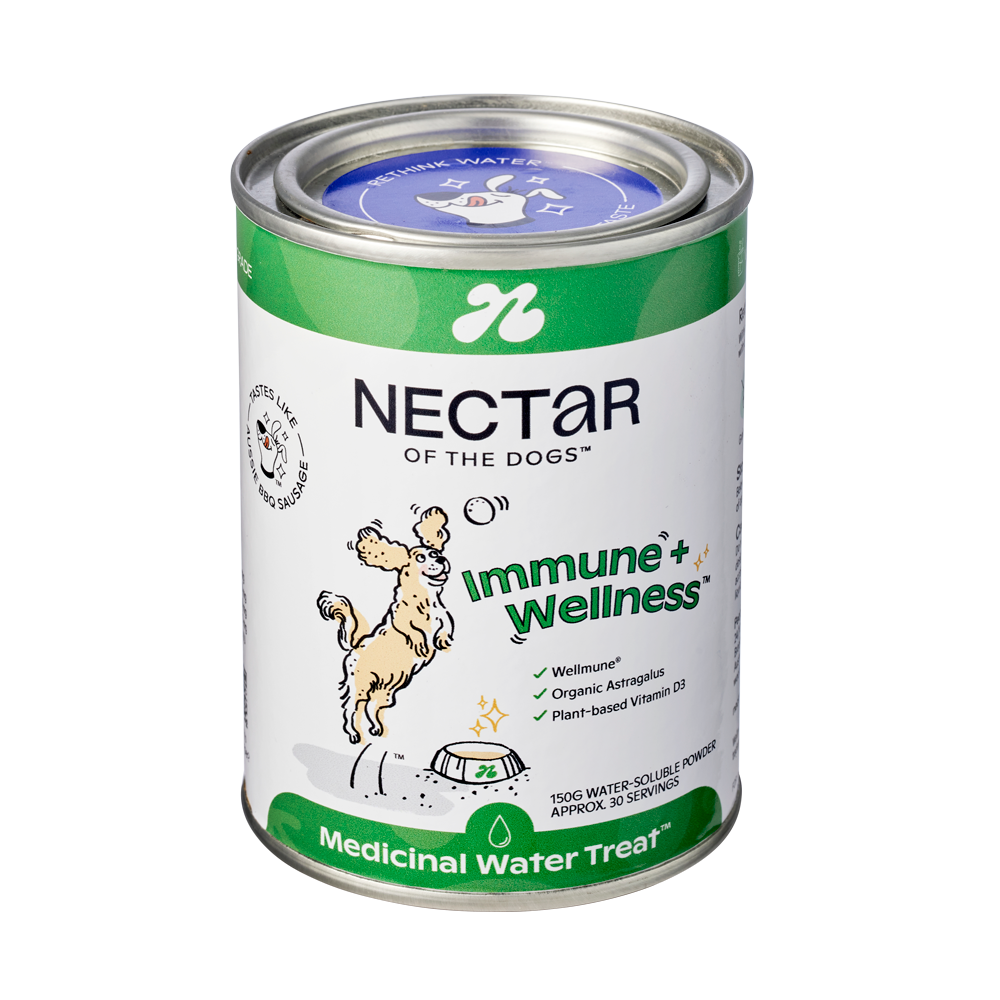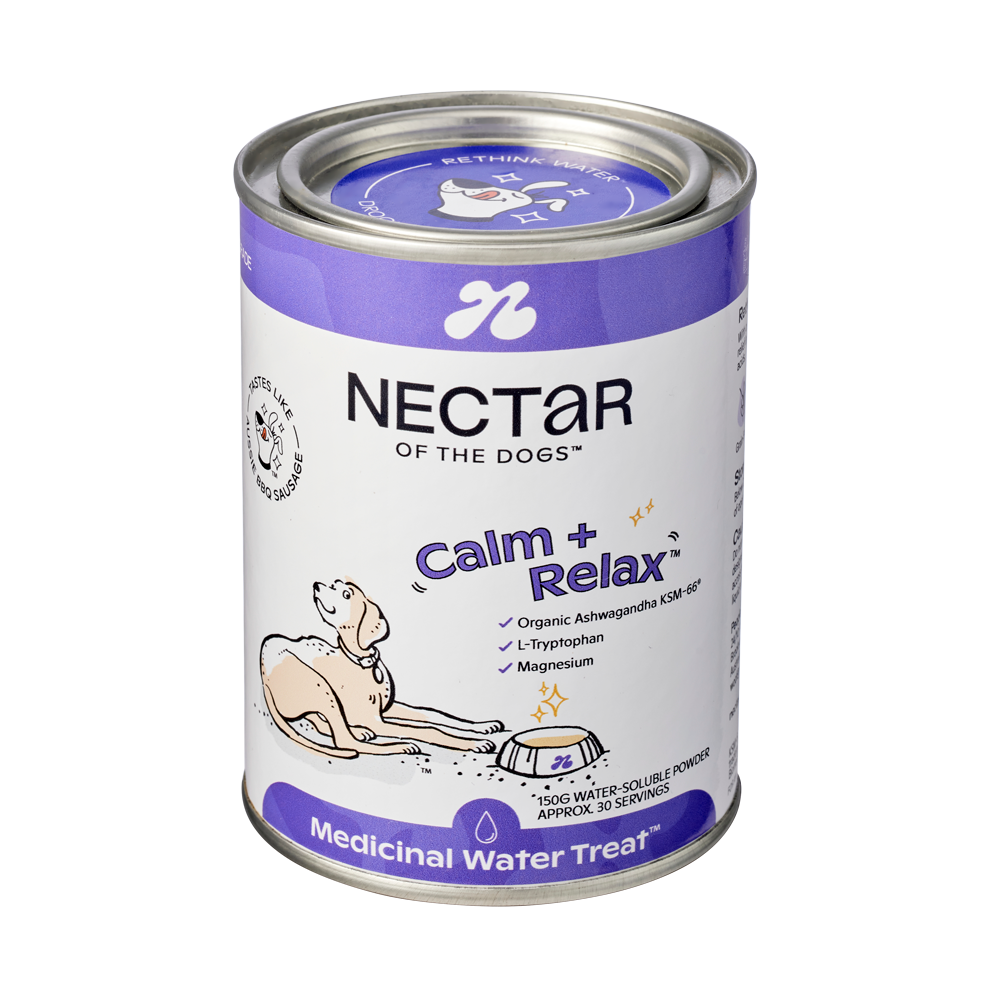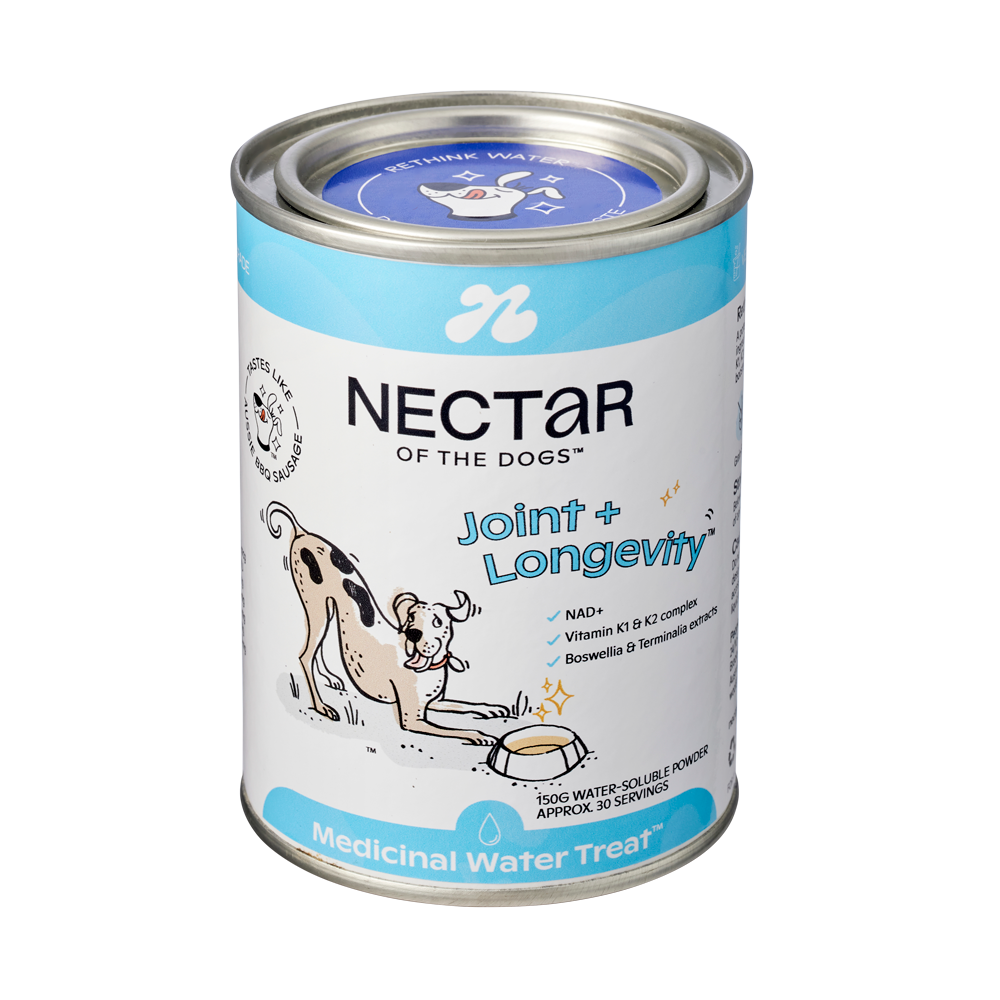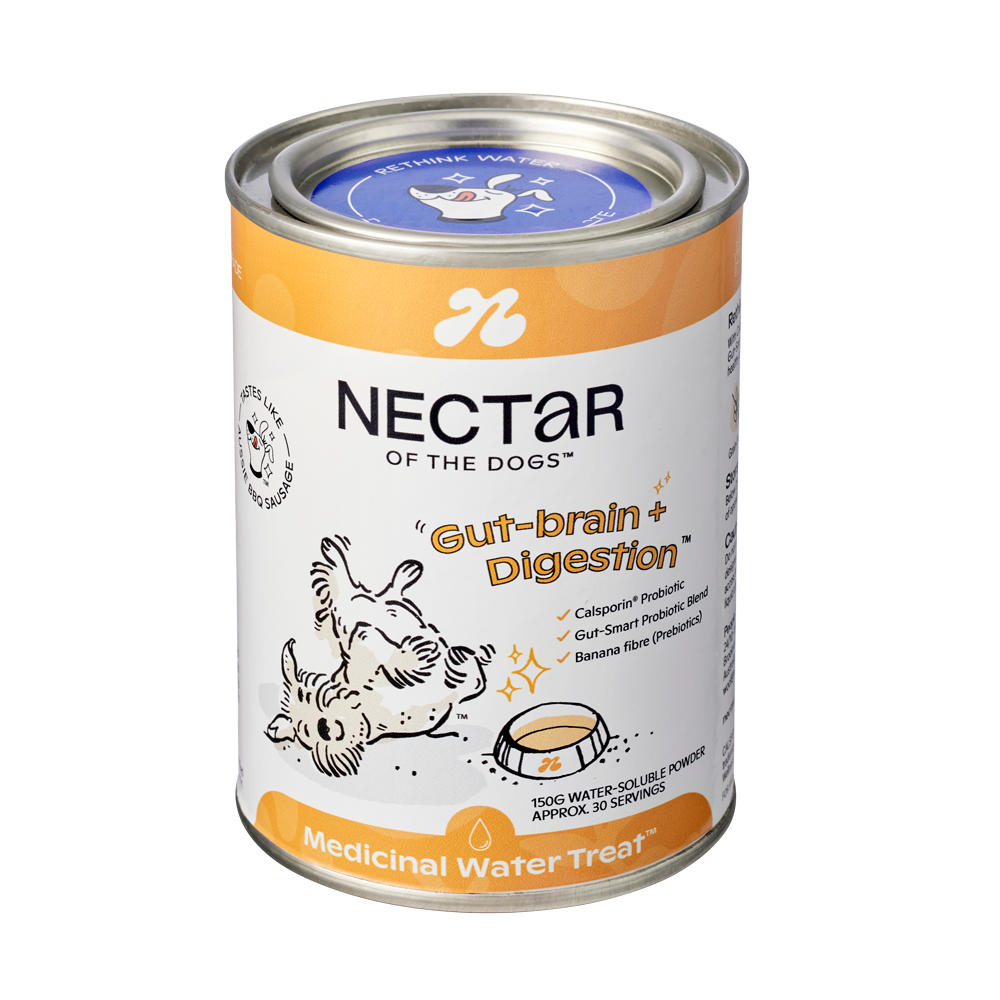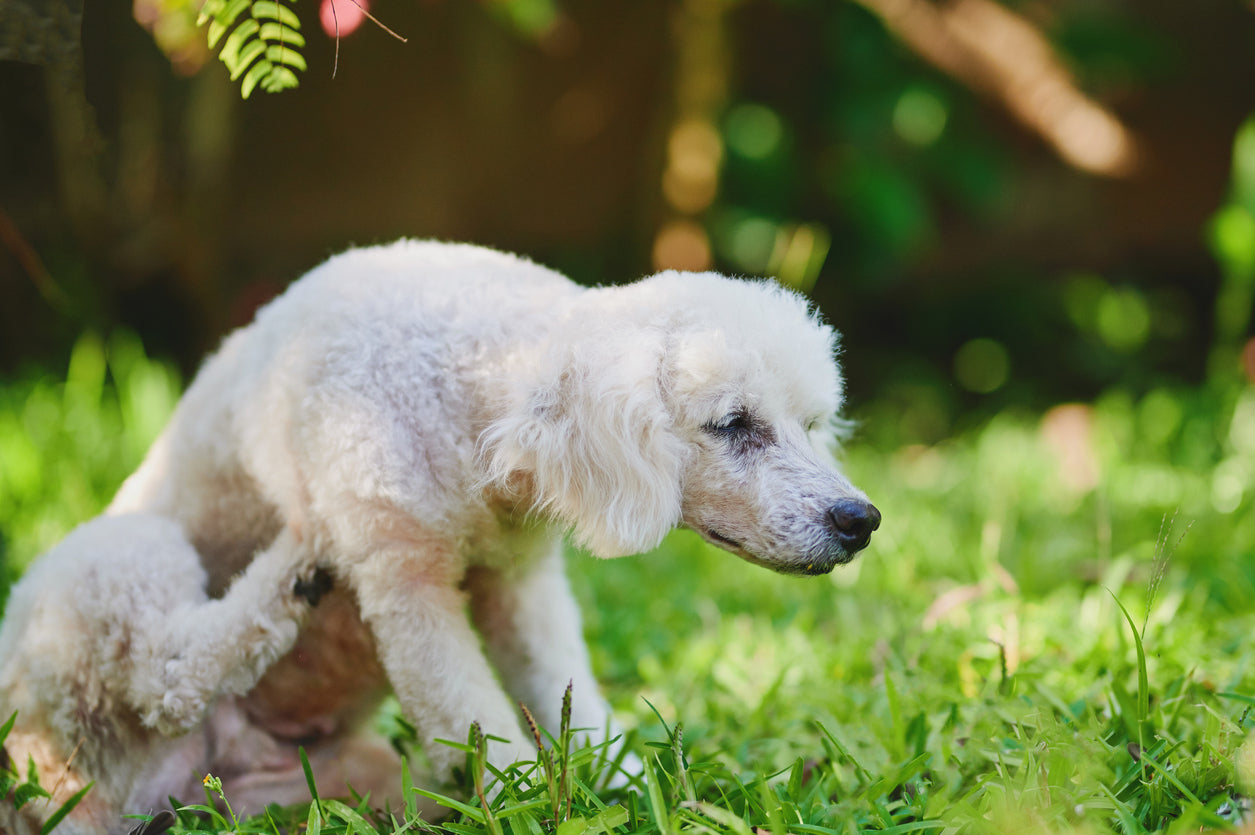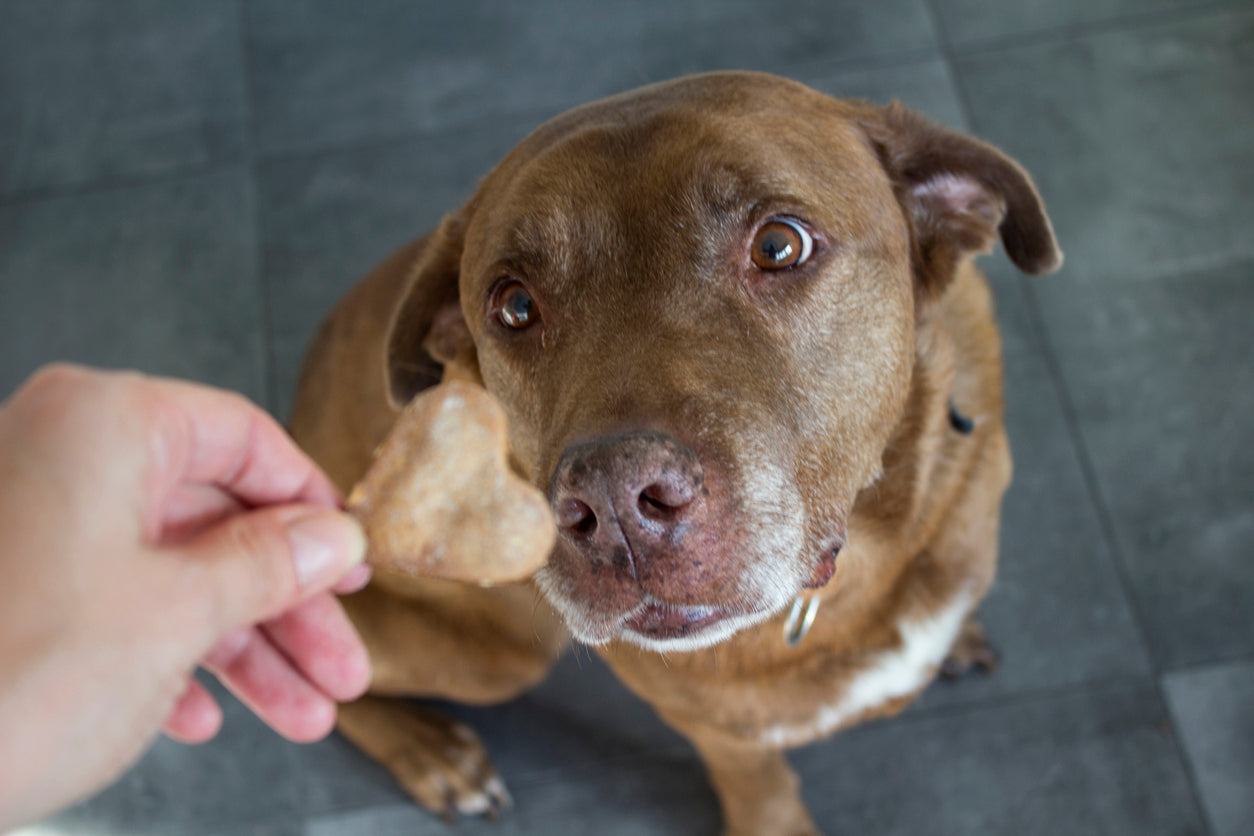What is the Gut-Brain Axis in dogs?
Have you ever considered why your gut seems to mirror your mental state?
We get butterflies when we’re excited, have stomach knots when we feel anxious or when we’re making important decisions, and we’re told to trust our gut.
But why?
This is because of the gut-brain axis, which exists in both humans and our furry friends and which has been attracting more and more attention and research in recent years.

How does the gut-brain axis work?
The gut-brain axis refers to the two-way relationship between the gut and the brain.
In fact, the gut has even been referred to as the second brain or the enteric nervous system (ENS), as the gut microbiome can control mood and brain function.
Yes, that’s right, the bacteria in your gut can play a huge role in your mental health.
Until recently, researchers thought that feelings and mental states contributed to poor gut health. But a growing body of research now suggests that it may also be the other way around. The microflora in our digestive system plays a role in our brain function, mood, and emotion, and in our mental and physical health. These interactions are bi-directional and the same goes for our pets.
But how are the two connected?
What connects the gut and the brain?
The gut and the brain are linked by a complex and dynamic communication system involving neurons, hormones and chemical reactions.There are many functions in the body which connect the gut and the brain. These include:
Neurons
Neurons are cells that transmit information. They help the body function, and ensure that it responds correctly to internal and external stimuli.
It’s been found that the gut contains over 500 millon neurons which are all connected to the brain, hence the gut brain connection.
The vagus nerve
The vagus nerve is another factor that facilitates the two-way connection between the gut and the brain.
This nerve is the longest and most complex cranial nerve in a dog’s body. It plays a big role in regulating the parasympathetic nervous system, which is responsible for helping the body relax. It performs many other functions but to put it simply, it is like a messenger relaying information from the gut to the brain - letting the brain know about the state of the gut.
Neurotransmitters
Neurotransmitters also play a role in the gut-brain connection.
They’re known as the body’s chemical messengers, because they send messages around the body.
Neurotransmitters are responsible for controlling feelings and emotions. You may have heard of serotonin and dopamine. These neurotransmitters help with mood regulation, and they play a critical role in the gut-brain connection.
It’s been found that lots of these mood-affecting neurotransmitters are produced by the cells in the gut, further contributing to the gut-brain axis.
The gut also produces gaba-aminobutyric acid (GABA), which is a neurotransmitter that helps alleviate anxiety.
Therefore, it can be said that lots of our moods start in the gut. We can start to better understand how a dog’s gut health can influence their behaviour such as aggression or anxiety.
Gut microbes
There are around 30-400 trillion micro-organisms that live in the gut, and these are known as gut microbes.
These microbes play an important role in digestion, nutrition and immune system regulation.
Gut microbes also impact the brain through the production of short-chain fatty acids, which help the gut and brain communicate effectively.
The gut-brain axis and nutrition
As we know, diet plays a massive role in regulating our mental state.
We’re going to discuss the foods you and your furry friend should incorporate into your diets to nurture your gut-brain connection.
Probiotics and prebiotics
Probiotics and prebiotics are super important for regulating the microbiome and the gut-brain axis.
Probiotics are healthy bacteria, and prebiotics are fibres that help this bacteria grow in the gut (food for the good bacteria).
Both prebiotics and probiotics promote gut health and can relieve symptoms of stress and anxiety.
For humans, this involves eating a diet rich in fermented foods (yoghurt, kefir, kimchi) and fibre (leafy greens, fruits, vegetables, seeds and grains).
But for dogs, specific types (strains) of probiotics have been shown to be more effective in providing gut health benefits. We recommend Nectar’s Gut-Brain + Digestion. This plant-based supplement contains scientifically researched probiotics, prebiotics fibres, postbiotics and fulvic acidto help balance the gut microbiome of your pup and nurture your pup’s gut-brain connection.
And the best part? It’s completely hassle free. All you need to do is add the recommended serving size to your dog's food or dissolved in a bit of water. It’s that easy.
Polyphenols
Polyphenols are known for their antioxidant properties and are abundant in fruits and vegetables. They also increase the healthy bacteria in the gut, and they also work to reduce inflammation.
Omega-3 fatty acids
Omega-3 fatty acids are also important for nurturing the gut-brain connection, as they promote a healthy gut.
These include fish, nuts and seeds.
Our dogs’ gut-brain axis controls many key areas of their health. We therefore need to support their gut health as much as possible to subsequently support their brain health, mood and behaviour. Nutrition and supplementation can play a crucial role to keep a healthy gut microbiota and therefore has the potential to also help modulate mood and behaviour.
We all want to live strong, healthy lives. And we want this for our pets too.
Want to learn more about the gut microbiome? Check out our other articles on pet nutrition.
